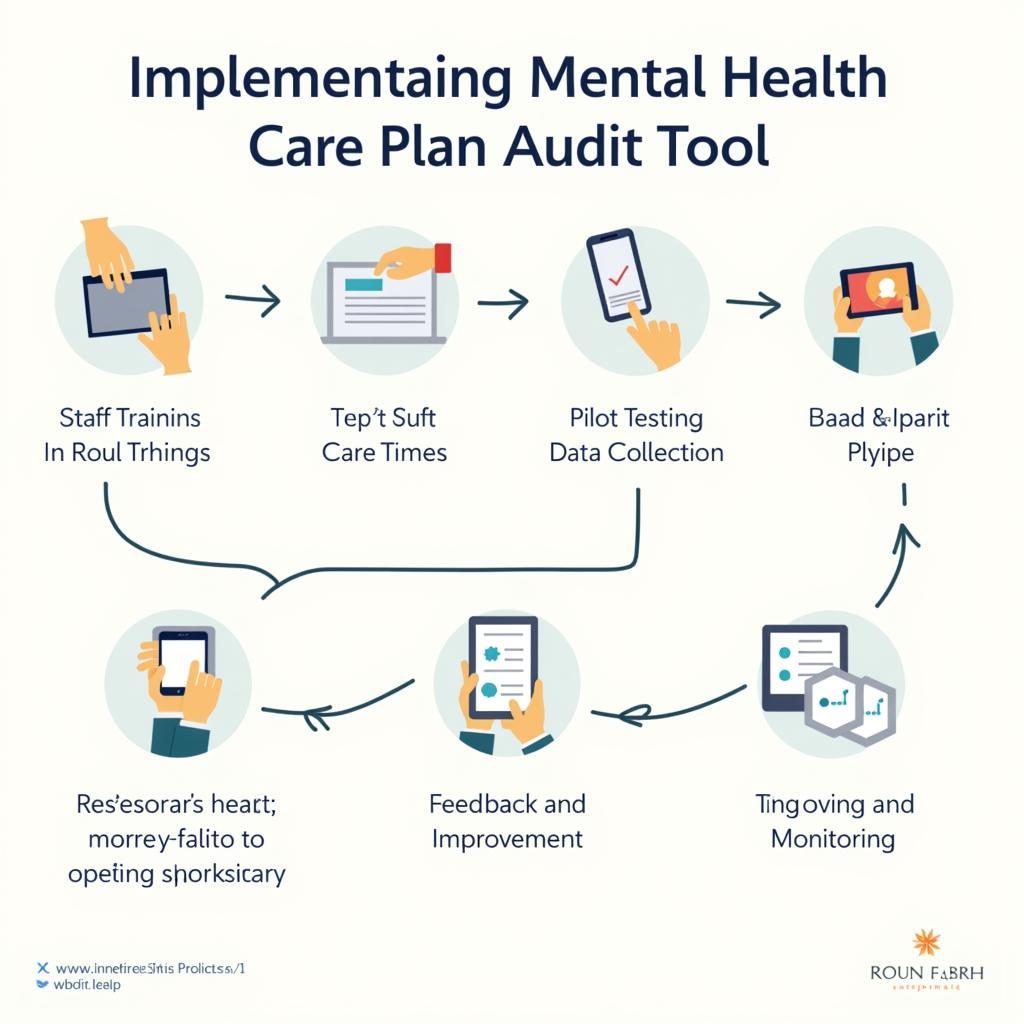A Mental Health Care Plan Audit Tool is essential for ensuring quality care and compliance with regulations. It helps identify gaps in service provision, track progress, and improve outcomes for individuals receiving mental health services. Utilizing a robust audit tool is crucial for both providers and payers to maintain accountability and optimize resource allocation.
What is a Mental Health Care Plan Audit Tool?
A mental health care plan audit tool is a structured instrument used to systematically assess the quality and appropriateness of mental health care plans. These tools evaluate whether care plans adhere to established standards, guidelines, and regulations. They can be used by various stakeholders, including clinicians, administrators, auditors, and accreditation bodies.
Key Components of a Mental Health Care Plan Audit Tool
A comprehensive mental health care plan audit tool should incorporate several key components to effectively evaluate different aspects of care:
- Patient Demographics and History: This section gathers essential information about the individual, such as age, diagnosis, and relevant history.
- Assessment and Diagnosis: The tool should assess the accuracy and completeness of the assessment and diagnostic process.
- Goals and Objectives: It examines whether the care plan includes clear, measurable, achievable, relevant, and time-bound (SMART) goals and objectives.
- Interventions and Treatments: This section evaluates the appropriateness and effectiveness of the interventions and treatments outlined in the care plan.
- Medication Management: If medications are prescribed, the audit tool assesses their appropriateness, dosage, and monitoring.
- Risk Assessment and Safety Planning: The tool checks for the inclusion of a thorough risk assessment and a comprehensive safety plan.
- Collaboration and Communication: It evaluates the level of communication and collaboration between the patient, their family, and the care team.
- Documentation and Record Keeping: This section assesses the completeness and accuracy of the documentation related to the care plan.
- Outcome Measurement: The tool should include measures to track the progress and outcomes of the care plan.
Benefits of Using a Mental Health Care Plan Audit Tool
Implementing a mental health care plan audit tool offers numerous benefits for both providers and patients:
- Improved Quality of Care: By identifying areas for improvement, the tool facilitates better service delivery and enhances the quality of care provided.
- Enhanced Compliance: It ensures adherence to regulatory requirements and reduces the risk of non-compliance.
- Increased Accountability: The audit tool promotes accountability among clinicians and healthcare organizations.
- Better Resource Allocation: By identifying areas of inefficiency, it helps optimize resource allocation and utilization.
- Improved Patient Outcomes: Ultimately, using an audit tool contributes to improved outcomes for individuals receiving mental health services.
How to Choose the Right Mental Health Care Plan Audit Tool
Selecting the appropriate audit tool requires careful consideration of several factors:
- Specific Needs and Goals: Choose a tool that aligns with the specific needs and goals of the organization.
- Ease of Use: The tool should be user-friendly and easy to implement.
- Data Analysis and Reporting: It should provide comprehensive data analysis and reporting capabilities.
- Cost-Effectiveness: Consider the cost of the tool and its potential return on investment.
Implementing a Mental Health Care Plan Audit Tool
Successful implementation of an audit tool involves the following steps:
- Staff Training: Provide comprehensive training to staff members on the use of the tool.
- Pilot Testing: Conduct a pilot test to identify any potential challenges and refine the implementation process.
- Data Collection and Analysis: Collect data systematically and analyze it to identify trends and areas for improvement.
- Feedback and Improvement: Provide feedback to staff and implement changes based on the audit findings.
- Ongoing Monitoring: Continuously monitor the effectiveness of the audit tool and make adjustments as needed.
“Regular audits are essential for maintaining a high standard of care and ensuring that patients receive the best possible treatment,” says Dr. Amelia Hart, a leading psychiatrist specializing in mental health care quality improvement.
 Implementing a Mental Health Care Plan Audit Tool
Implementing a Mental Health Care Plan Audit Tool
Conclusion
A mental health care plan audit tool is a crucial instrument for improving the quality of mental health care, enhancing compliance, and optimizing resource allocation. By using a robust audit tool and following a structured implementation process, healthcare organizations can ensure that they are providing the best possible care to individuals with mental health needs.
FAQ
- What are the key components of a mental health care plan?
- How often should mental health care plan audits be conducted?
- Who should conduct the audits?
- What are some common challenges in implementing an audit tool?
- How can audit findings be used to improve care?
- What are the benefits of using standardized audit tools?
- What are some resources for finding mental health care plan audit tools?
Need assistance with Car Diagnostics? Contact us via WhatsApp: +1(641)206-8880, Email: [email protected] or visit us at 910 Cedar Lane, Chicago, IL 60605, USA. Our customer service team is available 24/7.

Leave a Reply